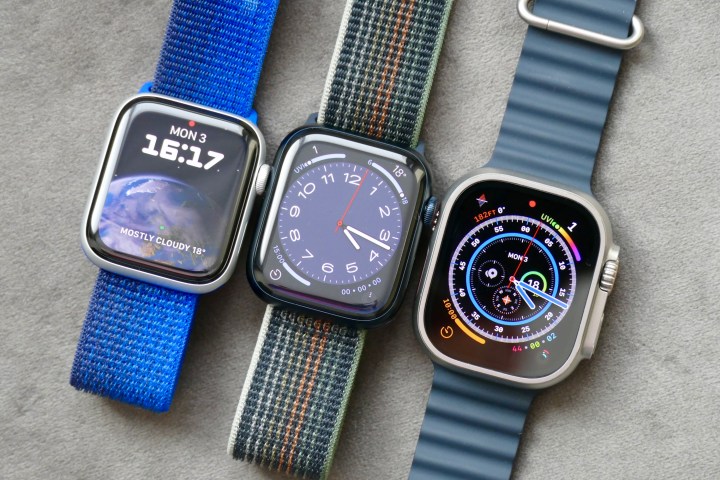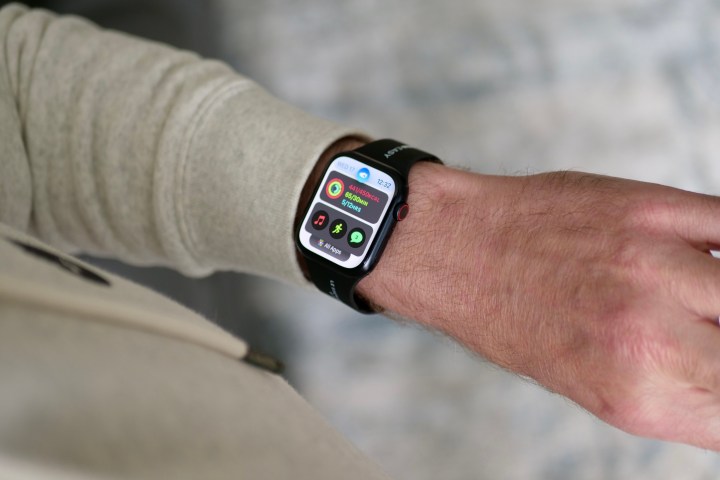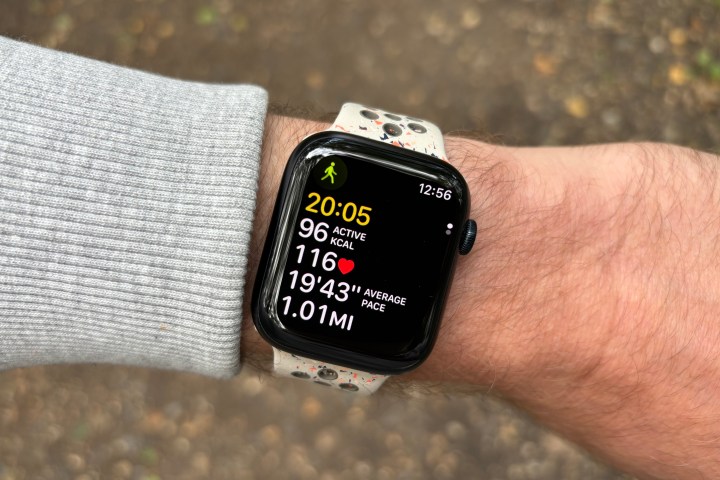For the past several years, Apple has dominated the smartwatch and wearable market with the Apple Watch. Whenever you’re out and see someone wearing a smartwatch, it’s most likely an Apple Watch.
As we are fast approaching the 10-year mark for the Apple Watch, which debuted in 2015, we could be in for some changes with the Apple Watch Series 10. The rumor mill has been constantly churning, so here’s what we know so far about the Apple Watch Series 10 (or possibly Apple Watch X).
Apple Watch Series 10: possible release date

Historically, Apple has released new Apple Watches alongside the next generation of iPhones. With that in mind, we should expect the Apple Watch Series 10 to be announced at the same time as the iPhone 16 this fall.
Though we know that Apple traditionally holds its iPhone event around this time, typically in September, we don’t have solid confirmation of Apple’s fall event just yet. We know it’s coming very soon, but nothing is certain until Apple announces it.
Apple could shake things up this time around since this would be a significant milestone for the Apple Watch. The first Apple Watch was originally announced in 2014 but released in 2015. If the Apple Watch Series 10 is going to be a special version of the Apple Watch, like the iPhone X marking the 10th anniversary of the iPhone, then it really could be up in the air whether it is announced in the fall or if there will be a new version next year instead.
Apple Watch Series 10: possible price

Apple has kept the Apple Watch Series line around the same price for the past several years. That means we should expect a similar price for the Apple Watch Series 10 once it’s announced.
The Apple Watch Series 9 currently starts at $399 for the GPS-only model and $499 for the GPS+Cellular version. Apple is likely to keep this price range for the Apple Watch Series 10, with the Apple Watch Ultra line retaining a higher price of $799.
We don’t really have any big leaks or rumors about what the Apple Watch Series 10 will cost, but we shouldn’t expect anything too far off from the norm. Of course, if there are any significant changes to the design or other upgrades, Apple could possibly bump the price up if it wanted to. For now, we just have to wait and see what happens.
Apple Watch Series 10: design and display

There have been whispers about a possible change to the design of the Apple Watch Series 10. From what we’ve heard so far, this could likely be the biggest upgrade for the wearable since the Apple Watch Series 7.
According to some reports from analyst Ming-Chi Kuo, the Apple Watch Series 10 will be thinner than its predecessors. As a result of a thinner body, it could also have a slight increase in display size, with rumors of a 2-inch display, which would be larger than the current 1.7-inch of the Series 9.
Additionally, the Apple Watch Series 10 could come in new sizes to accompany a thinner body. Currently, the Apple Watch Series 9 comes in 41mm and 45mm models. With the Apple Watch Series 10, we could see the 45mm being the “small” version, along with a new 49mm size. For reference, the current Apple Watch Ultra series is 49mm.

There have also been reports that Apple may use microLED displays rather than the OLED panels it has been using for the Apple Watch Series 10. However, we aren’t too sure about this rumor, as there is another contradicting report that Apple has canceled this plan.
Of course, since this is all speculation, we can’t be certain which one is correct. If there’s no microLED, then Apple will stick with OLED and possibly have a more power-efficient version.
Another big change that may be in store for the Apple Watch Series 10 is a new band system. According to Mark Gurman at Bloomberg, he believes that Apple is switching over to a new magnetic attachment system, which would free up space that is currently taken up for the cutouts on the current Apple Watch models. Doing this would add more space for internal components, allowing the overall design to be thinner. However, this would also make all previous Apple Watch bands from the past decade incompatible with the new watch.
Apple Watch Series 10: specs and health tracking

With the Apple Watch Series 9, Apple introduced a new S9 chip that is faster and more powerful than the previous S8 and earlier versions. This new chip allows users to get faster on-device Siri with access to health data and the new Double Tap gesture.
It’s pretty much expected that the next generation of Apple hardware will have a more powerful chip, and that applies to the Apple Watch Series 10.
Unfortunately, it seems unlikely that the Apple Watch Series 10 will have any new health-tracking features. While it was reported that Apple was trying to bring sleep apnea and hypertension detection to the Apple Watch, it hasn’t gone very smoothly.
Gurman reported that “Apple ran into some serious snags” in that department, such as unreliable hypertension detection. And for the sleep apnea detection, well, that feature seems to be fine, but it relies on blood oxygen saturation levels, which can’t be measured at the moment in the U.S. due to Apple’s ongoing legal issues with Masimo. If that can be resolved by September, then we may see sleep apnea come to the Apple Watch Series 10, but that’s a big if.
With these kinds of issues, it appears that these highly anticipated features will be delayed for at least another year until everything is resolved.
Apple Watch Series 10: battery life

There haven’t been many reports of the Apple Watch Series 10’s battery life so far. Even so, we can make some educated guesses here.
Apple hasn’t made any big improvements in the battery life for the mainline Apple Watch Series lately. When it did improve the battery, it was with the Apple Watch Ultra, which can get up to 36 hours of use on a single charge or up to 72 hours in Low Power mode.
But the main Apple Watch Series 9 and even the Apple Watch SE have continued to have around 18 hours of battery life. If you put the Apple Watch Series 9 in Low Power mode, then it extends the battery life to 36 hours. The Series 9 does have fast charging, which helps when you want to top it off.
If the Apple Watch Series 10 does get a size increase, that may result in a slightly larger battery inside, though the thinner aspect ratio may also affect that. Hopefully, the new chip will also be more power efficient, helping extend the battery life to a little beyond the 18 hours that Apple usually claims.
Again, with no solid reports about the battery, we can only speculate based on what else we know right now. We will update this accordingly when we learn more.
Apple Watch Series 10: software and updates

If the Apple Watch Series 10 launches this fall alongside the iPhone 16 line, then it should come with watchOS 11 out of the box.
Apple is also pretty good about longevity when it comes to its hardware, though it hasn’t given exact numbers like Samsung and Google. With watchOS 10 in 2023, Apple still supported up to the Apple Watch Series 4 (2018), but watchOS 11 dropped the Apple Watch Series 5 and earlier.
On average, an Apple Watch seems to last around five years, so we should expect something similar for the Apple Watch Series 10.
Services Marketplace – Listings, Bookings & Reviews